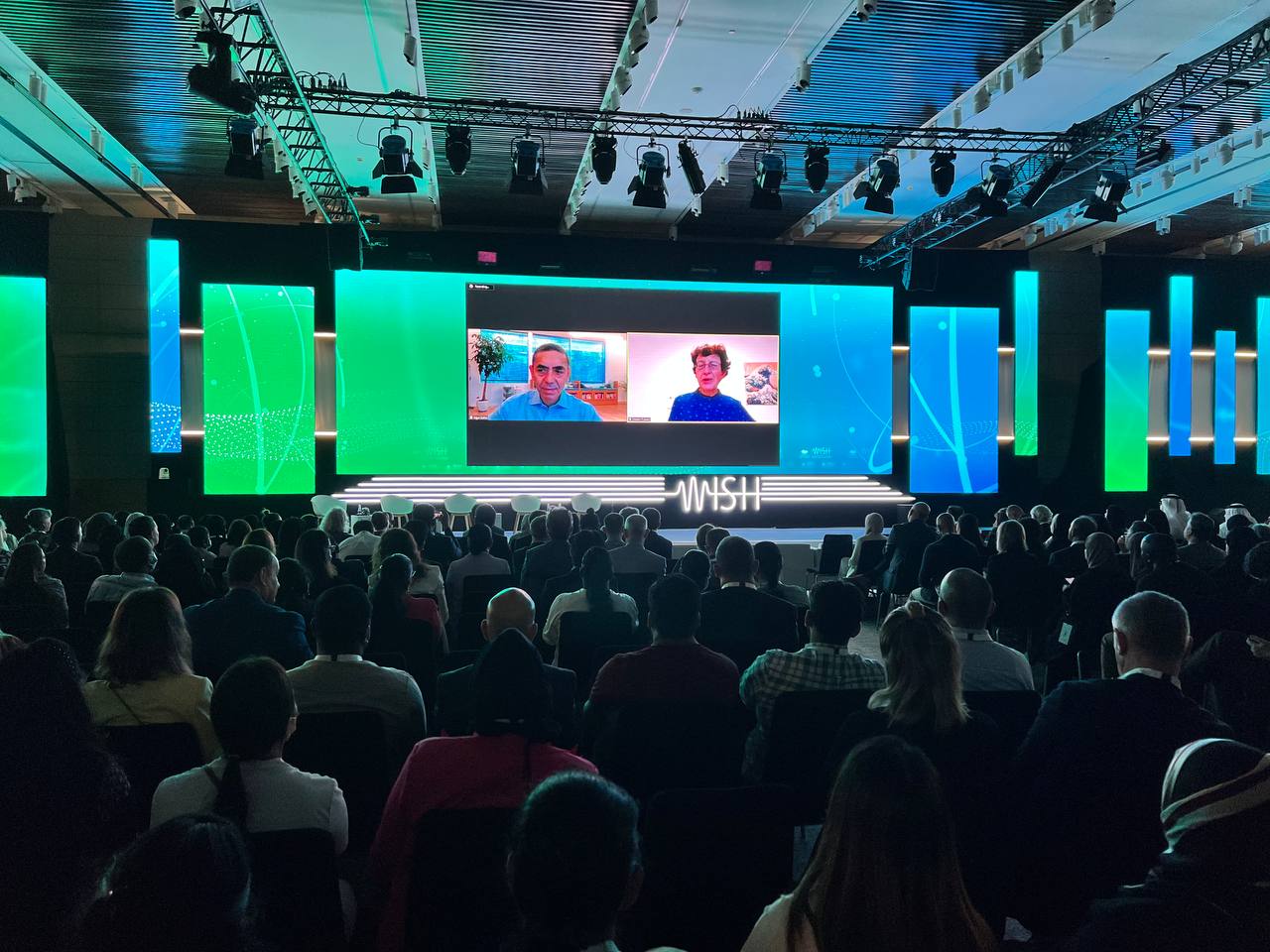Qatar Foundation’s WISH 2022 summit will take place until October 6, 2022.
In 2020, the Covid-19 pandemic sparked an extreme level of urgency to develop vaccines in a bid to curb the spread of the virus, but such urgency cannot be the norm for future immunisation efforts, founders of BioNTech said.
“A reason why we could be fast was that all stakeholders had the same joint sense of urgency,” Prof. Özlem Türeci, M.D, co-founder of the German startup company, said during a plenary session at World Innovation Summit for Health (WISH) 2022.
“For example, regulators reacted promptly, and we had rolling submissions which they worked on even before having the full data sets, and these aspects came together and allowed us to be the first, whilst not cutting any corners.”
The health tech figure, along with co-founder Prof. Ugur Sahin, used the summit’s platform to speak about various topics in the health industry that need global attention. The discussion was moderated by BBC journalist Stephen Sackur.
Among the topics discussed were the process of creating the famous Pfizer-BioNTech vaccine, progress on vaccination for various diseases, measures to address vaccine equality, and technology-related difficulties the industry is currently facing.
Developing the vaccine: behind the scenes
According to Dr. Sahin, it was evident that the Covid-19 outbreak was going to become a global threat that would require an urgent response to prevent millions of deaths around the world.
For that, stakeholders and health experts came together to produce the first vaccination dose as quickly as possible, which later went on to prevent thousands of deaths and kept people safe.
The sense of urgency that was sparked by the rising threat due to the spread of the virus pushed stalkholders to prepare for the second and third phases of trials while awaiting results from the first, Dr. Sahin explained.
However, the process was thoroughly examined and followed, and there were two main factors behind the success of developing the first mRNA vaccine to treat the virus
“One was that we had new technology, the mRNA, that allows us to make a vaccine extremely quickly,” he said.
“The second aspect was that we knew that our technology can induce extremely strong immune responses, and that is what you need in a pandemic outbreak situation – a technology that can allow you to come up with a vaccine while the pandemic is ongoing.”
All about mRNA safety
During the session, the safety features of the mRNA vaccine were also touched upon, along with the technology’s operation.
“A great aspect of mRNA is that after it fulfills its function, it is completely degraded so that it disappears from the cells, and this gave us confidence in a technology that we can use to instruct our immune system,” he explained.
The expert also mentioned how, like with any new technology, there were initial destinations. However, the science community and digital media assisted in spreading awareness of the vaccine’s safety and growing acceptance among populations all over the world.
Prof. Sahin remarked that the demand for the vaccine was higher than what was anticipated in terms of output from the original manufacturing plans, and that they, along with Pfizer, had to quickly react to scale up production.
“We realise that the vaccine, particularly in the first six months of Covid-19, was of course not available in a way that everyone could get access, because the demand for vaccine doses in the western world, in the United States and in Europe, was much higher than we could deliver.”
Addressing vaccine inequality
Regarding the inquality in vaccine distribution and availability in developing nations, particularly those in Africa, the BioNTech founders said they felt compelled to confront this issue with the same tenacity they had for the creation of a vaccine in the first place.
With the help of “BioNtainers,” which are portable shipping containers that can aid in the development of vaccinations for diseases other than Covid-19, they hope to achieve their goal of empowering individuals throughout the world to create their own vaccines.
The company has located three prospective locations in Africa with the assistance of the World Health Organisation, and the BioNtainers will be set and ready to function soon.
Future goals
The two founders spoke on the difficulties of technology transfer and emphasised the value of cooperation and dedication to make sure that the advantages of these technologies are communicated and made available to everyone.
Professors Sahin and Türeci are working to find cures for terrible diseases like HIV, tuberculosis, and malaria, and they want to make sure that these treatments are accessible to everyone in the world.







